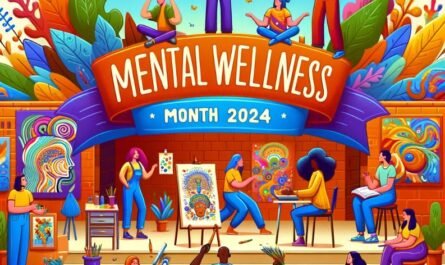In today’s digital age, the use of social media platforms has become a staple in our daily lives. As the prevalence of these platforms grows, there is a rising concern and interest in understanding “how does social media affect mental health.” With both positive and negative implications, the relationship between social media and mental health is intricate and multi-faceted.
What is the General Impact of Social Media on Health?
Social media, in its essence, is a tool for connection. It allows individuals from all corners of the world to communicate, share experiences, and stay updated. However, “the impact of social media on health” isn’t solely positive. While it offers a platform for community-building and global outreach, there are potential downsides, especially concerning mental and emotional health.
Example: Platforms like Instagram or Facebook, which emphasize sharing the best moments, can sometimes lead users to feel as if their lives don’t measure up, causing feelings of inadequacy or low self-worth.
The Various Effects of Social Media on Psychological Health
1. How can social media induce anxiety?
- “Social media anxiety meaning” stems from the unease or stress experienced by individuals due to their interactions on these platforms.
- This form of anxiety can arise from the pressure to present oneself in a specific way, the fear of missing out, or even the sheer volume of interactions.
- Interestingly, there is a phenomenon termed “social anxiety due to social media,” where the virtual interactions cause feelings akin to social anxiety in real-life situations.Summary:
- Anxiety arises from the pressure of online presentation.
- Fear of missing out is a significant factor.
- Virtual interactions can mirror real-life social anxiety.
2. Can social media affect mood fluctuations?
- Yes, research has shown that how users engage with content can significantly dictate “how does social media affect your mood.”
- Comparing oneself to others, encountering negative news, or even seeing idealized images can lead to feelings of sadness, inadequacy, or anger.
- Conversely, positive interactions, like reconnecting with an old friend or engaging in supportive communities, can boost one’s mood.Summary:
- Engagement type dictates mood outcomes.
- Negative content can lead to feelings of sadness or anger.
- Positive interactions can uplift mood.
3. Is there a link between social media and depression?
- The phrase “depression using social media” captures the essence of how over-reliance or unhealthy engagement with these platforms can lead to depressive symptoms.
- Encountering posts that “romanticize mental illness on social media” can normalize or even trivialize genuine mental health concerns.
- Moreover, seeing idealized lifestyles and constant achievements can make users feel like they’re lacking, pushing them further into depressive states.Summary:
- Over-reliance can lead to depressive symptoms.
- Romanticizing mental illnesses can trivialize genuine concerns.
- Idealized content can induce feelings of inadequacy.
4. How does social media influence bipolar disorder?
- There is preliminary research suggesting that hyper-engagement with social media during manic phases and withdrawal during depressive phases is observed in some individuals with bipolar disorder.
- It’s crucial to understand “how does social media affect bipolar disorder” because these platforms can act as triggers or even amplify symptoms.
- However, it’s essential to note that social media isn’t a direct cause but rather an influencing factor.Summary:
- Hyper-engagement observed during manic phases.
- Social media can amplify symptoms.
- It acts as an influencer, not a direct cause.
5. Are students particularly vulnerable to the effects of social media?
- Yes, the “impact of social media on students” can be profound. The developing brains of younger individuals are more susceptible to the rewards and pressures these platforms present.
- Students often face cyberbullying, peer pressure, and the stress of maintaining an online image, all of which can affect their mental and “social media mental health.”
- Platforms like TikTok or Snapchat, popular among younger audiences, often become arenas for comparison and competition, which can be detrimental.Summary:
- Students are more susceptible due to developing brains.
- They face online pressures and potential cyberbullying.
- Popular platforms among students can be arenas for negative comparisons.
How does social media perpetuate body image issues?
- Social media platforms, especially image-centric ones like Instagram, often emphasize beauty standards and ideal body types. These depictions can significantly impact users, leading them to question their self-worth and develop negative body perceptions.
- It’s not uncommon for individuals to face self-esteem issues after constant exposure to curated, filtered, and edited content. This can push some towards drastic measures, including unhealthy dieting or cosmetic procedures.
- While there are body positivity movements on social media, they often get overshadowed by mainstream content that accentuates conventional beauty ideals.Summary:
- Emphasis on ideal body types and beauty standards.
- Leads to negative body perceptions and self-esteem issues.
- Body positivity movements exist but are often overshadowed.
Are there benefits to mental health from social media?
- Social media isn’t entirely negative. Platforms can provide a sense of community, connection, and support for many individuals, especially those who feel isolated or marginalized in their real-life environments.
- There are numerous support groups, forums, and communities that provide assistance, knowledge, and encouragement for those dealing with various challenges, including mental health issues.
- While it’s vital to be cautious of potential misinformation, many find solace, understanding, and genuine connection in online spaces dedicated to mental well-being.Summary:
- Provides a sense of community and connection.
- Support groups and forums offer assistance and knowledge.
- Potential for genuine connection in spaces dedicated to well-being.
How do cyberbullying and trolling impact mental health?
- Cyberbullying and trolling are pervasive issues on social media platforms. The anonymous nature of the internet can embolden individuals to engage in harmful behavior without facing immediate consequences.
- Victims of online harassment often experience a surge in stress, anxiety, depression, and even suicidal thoughts. The constant barrage of negative comments and threats can erode their self-esteem and safety perception.
- While platforms are working to combat such behaviors, the sheer volume and anonymity make it a daunting task. It’s essential for users to be equipped with tools and knowledge to protect themselves.Summary:
- Anonymity can embolden harmful behavior.
- Victims experience stress, anxiety, and eroded self-esteem.
- Platforms combat these issues, but challenges remain.
How does social media affect sleep patterns and why does it matter?
- Social media, with its endless scrolling mechanism and constant notifications, can lead to disrupted sleep patterns. Many individuals find themselves checking their phones late into the night or immediately upon waking.
- The blue light emitted from screens can interfere with the body’s production of melatonin, a hormone crucial for sleep regulation. This, combined with the emotional and cognitive stimulation from content, can result in poor sleep quality or insomnia.
- Inadequate or disrupted sleep is linked to a plethora of mental health issues, including mood disorders, decreased cognitive function, and heightened stress levels.Summary:
- Endless scrolling and notifications disrupt sleep.
- Blue light affects melatonin production, leading to insomnia.
- Poor sleep linked to various mental health challenges.
How does the quest for validation on social media affect individuals?
- The “like” culture on social media has pushed many towards a constant quest for validation. Many base their self-worth on the number of likes, shares, or comments they receive, turning platforms into a perpetual popularity contest.
- This dependence on external validation can be detrimental to one’s mental health, fostering feelings of inadequacy when certain metrics aren’t met. It can also push individuals to share content that might not truly represent their authentic selves for the sake of gaining approval.
- Over time, this cycle can result in lowered self-esteem, anxiety, and an unhealthy attachment to virtual approval over genuine real-life connections and self-worth.Summary:
- “Like” culture fosters a need for constant validation.
- Dependence on metrics can lead to feelings of inadequacy.
- Results in lowered self-esteem and preference for virtual approval.
Main Points Summarized in a Table
Topics | Description | Potential Effects |
|---|---|---|
Anxiety | Stress from online interactions. | Feelings of inadequacy, fear of missing out. |
Mood | Engagement type affects mood. | Sadness, anger, happiness. |
Depression | Over-reliance and idealized content. | Feelings of inadequacy, romanticizing illness. |
Bipolar Disorder | Influence of platforms on symptoms. | Amplified manic or depressive phases. |
Students | Susceptibility to online pressures. | Cyberbullying, stress, comparison. |
FAQ Section
How does social media influence our mental state?
Social media can both positively and negatively affect our mental state depending on the type of content, interactions, and the amount of time spent on the platforms.
Are there direct links between social media usage and mental health disorders?
While social media can influence certain symptoms or feelings, it’s often a combination of various factors that contribute to mental health disorders.
How can one safeguard their mental health while using social media?
Limiting usage time, curating content, and taking breaks can help ensure a healthier relationship with these platforms.
Does romanticizing mental illness on social media harm genuine sufferers?
Yes, it can trivialize genuine concerns and create misconceptions about various disorders.
Are students more prone to the negative effects of social media?
Yes, students, due to their developing brains and peer pressures, can be more susceptible to the pressures and influences of social media.
How can someone differentiate between occasional blues and depression due to social media?
If negative feelings persist, intensify, or impact daily life, it might be indicative of a deeper issue rather than just occasional blues.
Why is there so much focus on the “effects of social media on mental health” in recent times?
Due to the vast number of users and the increasing time spent on these platforms, understanding its impact on mental health has become paramount.
Can one’s social media habits indicate their mental state?
While not definitive, excessive usage, withdrawal, or certain types of interactions might hint at one’s mental well-being.
Are there any resources to help those affected by social media’s negative impact?
Yes, resources like “What Are Some Effective Treatment Options Available for Mental Health Issues?” can offer insights into dealing with such challenges.
How does one differentiate between genuine and fake portrayals of mental health on social media?
Critical thinking, cross-referencing with credible sources, and understanding that social media often showcases extremes can help in discerning genuine from fake portrayals.

